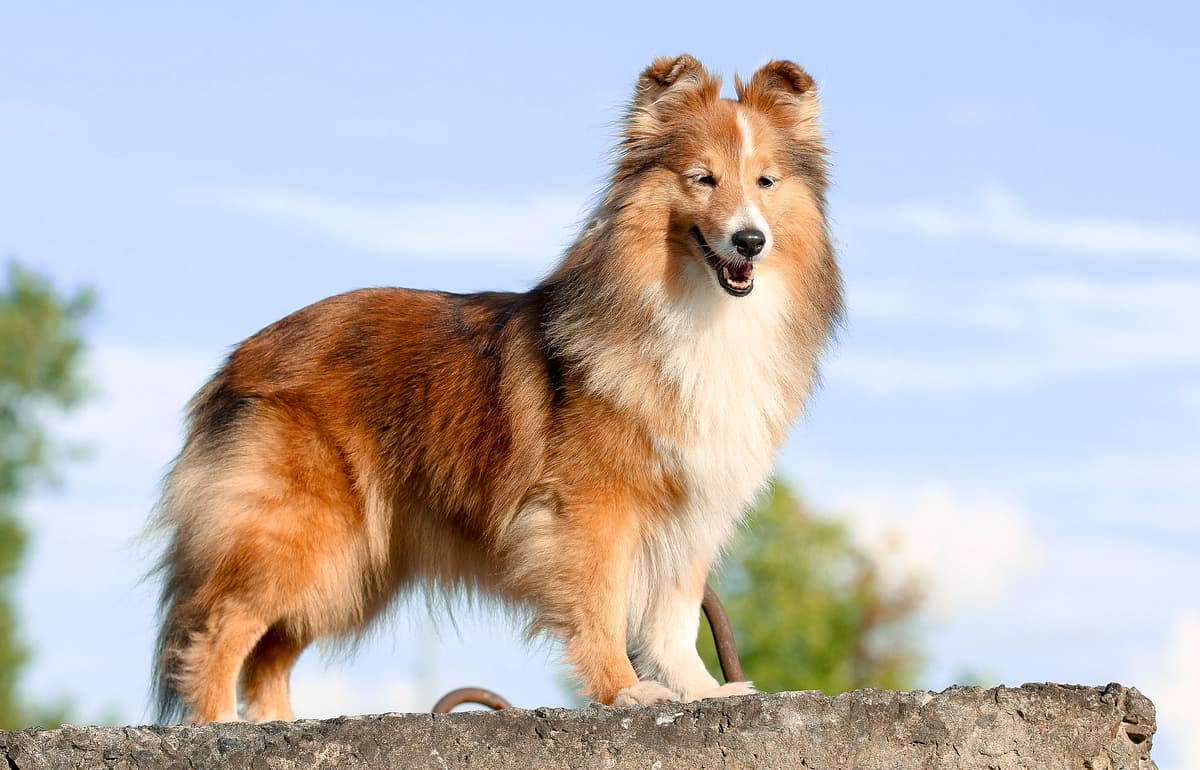Sheltie vs English Bulldog
Discover the differences between Sheltie and English Bulldog to make the best choice for your situation.
Try different breeds

Sheltie
Energetic, intelligent, and loyal, this breed thrives on companionship and mental stimulation. Agile and responsive, it excels in dog sports and makes a loving family friend.

English Bulldog
Stocky, courageous, and affectionate, this breed charms with its wrinkled face and calm nature. Loyal and gentle, it thrives as a loving family companion.
Quick comparison
Medium
9–11 kg
Double coat, dense undercoat
12–14 years
8–10 kg
High energy
Medium
23–25 kg
Short, smooth
8–10 years
18–23 kg
Low activity needs
Personality & behavior
Compare the personality traits and behavioral characteristics of both breeds.
Sheltie
Affectionate with family, reserved with strangers
Learns commands and tasks quickly and easily
Needs regular activity and mental stimulation
Enjoys games and interactive activities daily
May struggle with changes or new environments
English Bulldog
Affectionate and gentle with family and children
Learns basic commands with some patience
Prefers lounging over vigorous physical activity
Enjoys play but tires fairly quickly
Adjusts well to most living environments
Care needs
Exercise, grooming, and daily care requirements
Sheltie
Collie eye anomaly, hypothyroidism
English Bulldog
Brachycephalic syndrome, skin fold infections
Suitability
How well each breed fits different living situations and families
Sheltie
Good option
Intelligent and eager to please, Shelties respond well to consistent training and guidance.
Manageable with effort
Shelties can adapt to apartments if given enough daily exercise and mental stimulation.
Excellent match
High energy levels make Shelties well-suited for active, engaged households.
Generally suitable
Gentle and affectionate, but may be sensitive to loud or rough play from young children.
Gets along well
Typically sociable with other pets when properly introduced and socialized.
Prone to anxiety
Shelties can develop separation anxiety if left alone for long periods frequently.
English Bulldog
Good option
Easygoing, low-maintenance nature suits owners with limited dog experience
Excellent fit
Moderate exercise needs and calm demeanor work well in small living spaces
Not ideal
Low stamina and breathing issues make them unsuited for high-activity lifestyles
Very suitable
Gentle, patient, and tolerant with young children when properly socialized
Usually compatible
Generally sociable but may need guidance with other pets, especially dogs
Not recommended
They struggle with long periods alone and are prone to separation anxiety
Breed strengths
What each breed excels at and their best qualities
Sheltie
- Highly intelligent and responsive to training
- Loyal and affectionate with family members
- Excellent watchdog with strong alertness
- Good with children and other pets
- Agile and excels in canine sports
English Bulldog
- Affectionate with family members
- Generally good with children
- Low exercise requirements
- Minimal grooming needs
- Adaptable to apartment living
Challenges & considerations
Potential challenges and considerations for each breed
Sheltie
- Prone to excessive barking without training
- Sensitive to loud noises and stress
- Needs daily exercise and mental stimulation
- Heavy seasonal shedding requires regular grooming
- Can be reserved or shy with strangers
English Bulldog
- Prone to respiratory problems
- High risk of overheating
- Susceptible to skin infections
- Can be stubborn during training
- Tends to drool frequently
Ready to choose your perfect breed?
Learn more about each breed or compare other breeds to find the perfect match for your lifestyle.
Discover more helpful tools
Make use of our other free tools to get the most out of your pet experience
